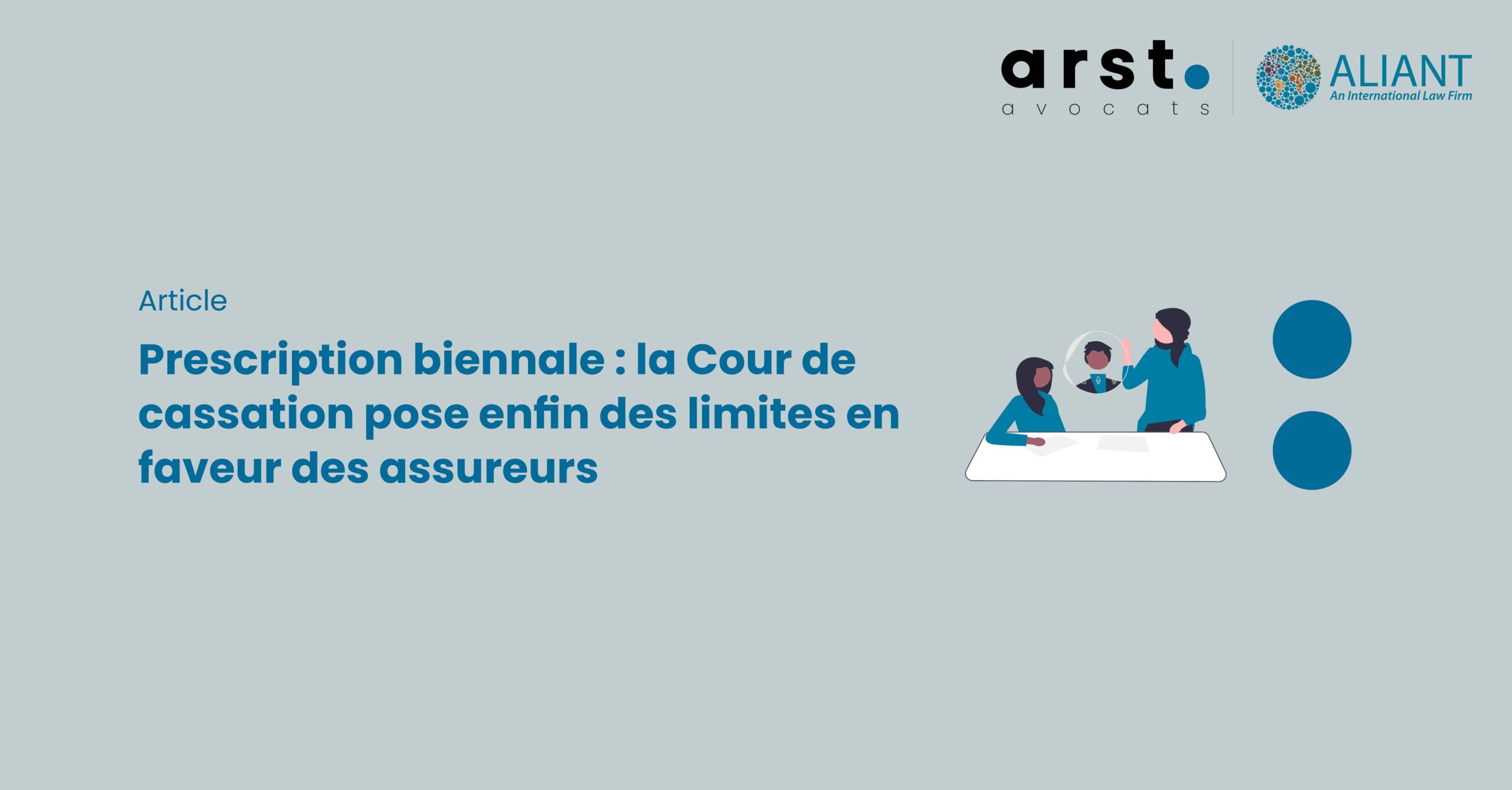
According to Article R.112-1 of the Insurance Code , insurance policies must recall in full the legal provisions relating to the limitation of actions arising from the insurance contract, namely Articles L.114-1 and L.114-2 of the same code establishing a two-year limitation period.
This obligation has been refined by the Court of Cassation over several years in a way that is favorable to policyholders .
Indeed, on the one hand, the High Court considered that " the ordinary causes of interruption of the prescription " referred to in the aforementioned Article L.114-2 had to be mentioned in the contract [1] .
On the other hand, it considered that disregard for these provisions was sanctioned, not only by the unenforceability against the insurer of the two-year limitation period, but also of the general limitation period [2] , leading the insured to a form of "imprescriptibility".
The Court of Cassation even attempted to have the two-year limitation period declared unconstitutional, deemed too short by some legal scholars, by referring a priority question of constitutionality relating to the aforementioned Article L.114-1 to the Constitutional Council[3].
However, he did not give in to this trend and validated the conformity of the two-year prescription to the Constitution [4] .
It is in this context that the Court of Cassation had to rule on the appeal of a company against which the insurer AXA had raised the statute of limitations to refuse to compensate for the thefts suffered by its insured.
In its appeal, the appellant argued that the insurance policy did not mention the provisions of Article 2243 of the Civil Code, according to which " the interruption is null and void if the claimant withdraws his claim or allows the proceedings to lapse, or if his claim is definitively rejected ."
However, in accordance with article R.112-1 of the insurance code, AXA should have recalled the general provisions of article 2243 of the civil code, in particular in order not to mislead the insured.
The High Court, however, rejects the appeal, considering that the insurance contract is not required to recall the provisions of Article 2243 of the Civil Code.
Thus, she distinguishes:
- the grounds for interruption of the ordinary and two-year limitation periods, which must be mentioned in the policy, in accordance with established case law on the matter (see above ); and
- obstacles to the interruption of the prescription (e.g., article 2243 cited above), which do not necessarily have to be mentioned in the policy.
This is a strict application of the law insofar as articles L.114-1 and L.114-2 of the insurance code do not concern themselves with obstacles to interruption, unlike the " ordinary causes of interruption " which they expressly mention, which is why they do not necessarily have to be mentioned in the insurance policy.
In doing so, the Court of Cassation seems to be setting welcome limits to the "imprescriptibility" hitherto defended by its jurisprudence.
[1] Cass. 2nd civ., April 18, 2013, n° 12-19.519 ; Cass. 2nd , 2013, n°12-27.124
[2] Cass. 3rd civ., March 21, 2019, n° 17-28.021 ; Cass. 2nd , 2022, n°21-17.327
[3] Cass. 2nd Civ ., October 7, 2021, No. 21-13.251
[4] Constitutional Council, December 17, 2021, No. 2021-957 DC

Lily Ravon
author
Repetition of old-age benefits obtained by fraud
Court of Cassation, Plenary Assembly, May 17...
Interview with Romain Picard, young partner of the firm Arst Avocats specialized in Corporate / M&A
Today we welcome Romain Picard, a young partner from Arst Avocats, who tells us about the reasons that led him to join the firm and talks to us about the projects that drive him with regard to the development of the practice of Corporate / M&A in this office...
Confidentiality of meetings between parties and lawyers: rules to know
Reminder of the rules governing the confidentiality of meetings held in the presence of the parties and their lawyers. Pursuant to Article 3 of the National Internal Regulations of the Legal Profession (“RIN”), professional secrecy covers correspondence exchanged...
Repetition of old-age benefits obtained by fraud
Court of Cassation, Plenary Assembly, May 17...
Interview with Romain Picard, young partner of the firm Arst Avocats specialized in Corporate / M&A
Today we welcome Romain Picard, a young partner from Arst Avocats, who tells us about the reasons that led him to join the firm and talks to us about the projects that drive him with regard to the development of the practice of Corporate / M&A in this office...
Confidentiality of meetings between parties and lawyers: rules to know
Reminder of the rules governing the confidentiality of meetings held in the presence of the parties and their lawyers. Pursuant to Article 3 of the National Internal Regulations of the Legal Profession (“RIN”), professional secrecy covers correspondence exchanged...